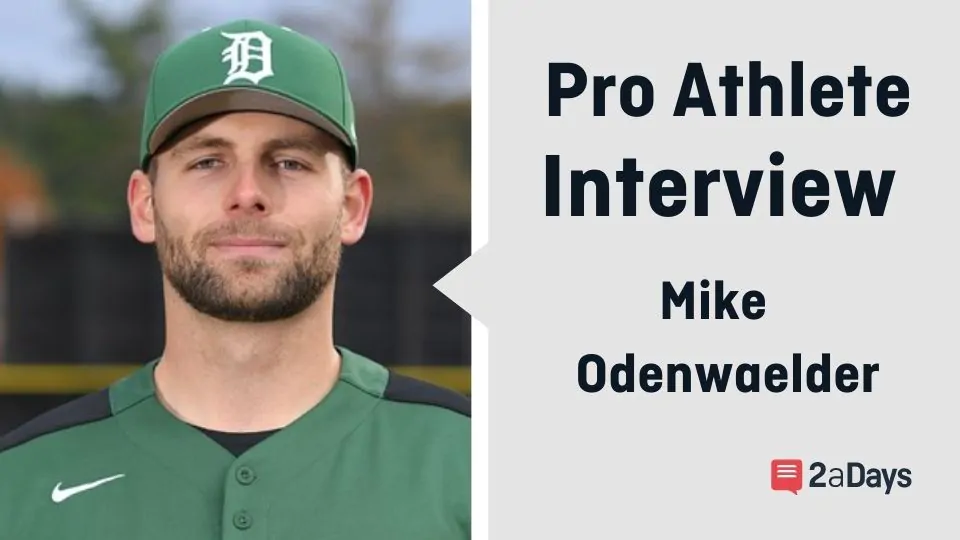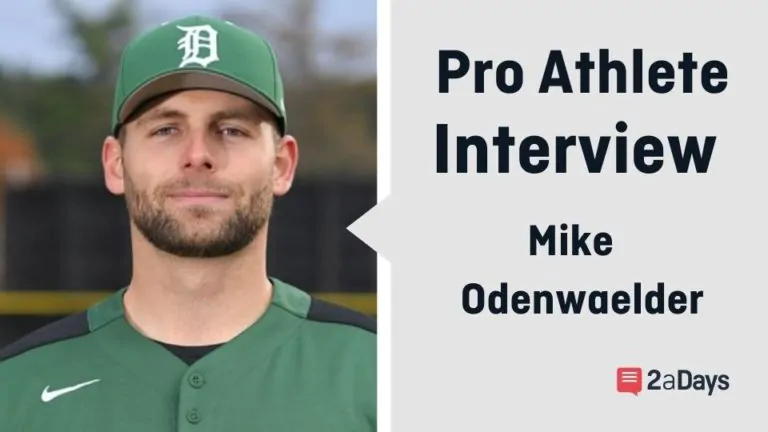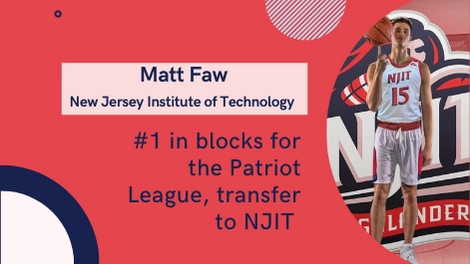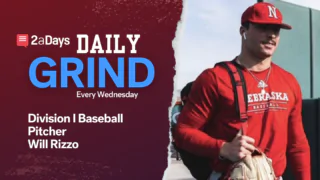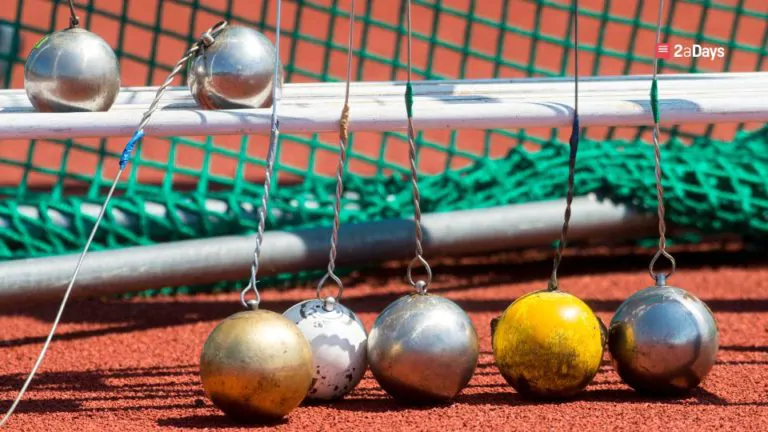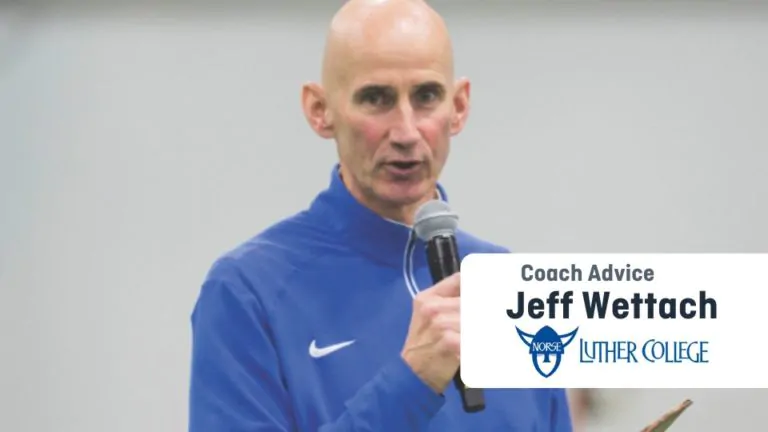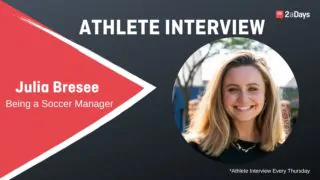Many young baseball players dream of making it big but few actually do. Mike Odenwaelder is the exception. Odenwaelder left Amherst College after his junior year to take on his professional baseball career and played 2 years of professional baseball in the Baltimore Orioles's minor league affiliate team, the Aberdeen IronBirds. While at Amherst, Mike was a part of what was arguably Amherst's most successful years in baseball. The team won a NESCAC Championship and appeared in 3 NCAA Regionals. Mike was NESCAC Rookie of the Year, two-time NESCAC Player of the Year, two-time All-American, and ABCA Rawlings Gold Glove Award Winner. When he was drafted he was selected in the 16th round of the MLB Draft. When he concluded his time playing professionally he returned to Amherst to finish his undergraduate degree and while he did so, he played football during his final semester. Mike is currently an assistant coach for the Dartmouth baseball team. Here's what you can learn from His experiences.
2aDays: At what age did you begin playing baseball? Was right field always your position of choice?
Mike: I started playing baseball when I was about 5 years old. Until I got to college I was a shortstop and pitcher; I had never played outfield.
2aDays: Did you participate in any other sports competitively? Do you recommend that athletes play more than one sport in high school and college?
Mike: I played both soccer and basketball in high school as well. I think athletes should play multiple sports in high school to allow them the freedom to experience the different intricacies of various sports and team dynamics that come along with them.
2aDays: What is the best piece of advice that a coach gave to you?
Mike: “Hard work beats talent when talent doesn't work hard”
2aDays: What advice can you give to college athletes who want to play professionally?
Mike: Train with athletes from the highest possible level. Surround yourself with hungry, like minded people who have the same goals and aspirations as you. Research the business side of your sport to understand how things work from an operations standpoint, but don't let what you find deter you or your work ethic.
2aDays: What is the best piece of advice that you can offer an athlete who is looking to play at the college level?
Mike: Find the place that's the right fit. Don't just pick a school because of its image, history, or success. Find a place with people you want to be around, with a team you can identify with, and with a coach whom you actually want to work for. But in the end, your college experience is all what you make of it.
2aDays: If you could go back in time, what is the one thing about your recruiting process that you would change and why?
Mike: I would have visited more schools, used all my official visits, and started the process much earlier.
2aDays: Was making the decision to leave Amherst after your junior year tough or did you know it was the right choice? Please explain.
Mike: I knew it was the right choice. As a 22 year old junior I was already old for the game of baseball. With the ultimate goal being to make it to the Major Leagues, I had to start my career sooner rather than later. In order to give myself a shot, I felt I had to leave, and I don't regret my decision one bit. Baseball was everything to me at that point in my life, I was going to follow the game wherever it took me; and however far it could take me.
2aDays: How was it when you transitioned from college sports to playing at the professional level? What was the biggest adjustment?
Mike: Seeing a talent level that I had only experienced a few times per year every single night. Adjusting to professional pitching was extremely hard and something that I struggled with greatly. Also, learning to manage my time was tough. I had to figure out if I was working too much, too little, inefficiently, etc.
2aDays: How did you overcome nerves when it came to game time? Do you have any tricks to help other athletes?
Mike: I never really had nerves once gametime rolled around. I just let the game take over. I just trusted my training and all the years of hard work that I put in; by the time the game started, there was nothing more to do but soak it in and play.
2aDays: What are your thoughts on athletes using social media? What are the do's and don'ts?
Mike: I think it depends on the profile of the athlete. I think a college athlete at the D3 level can just go about their personal accounts however they please, but when you get into athletes at Big 5 colleges who are borderline pros, they need training and monitoring because of how their social media presence affects them, their team, and their academic institution. High profile athletes should have different accounts for personal and professional posts, I believe.
2aDays: What made you return to Amherst and join the football team?
Mike: I had never played football before but I had a year of athletic eligibility left and I had never been in school and not part of a team. Athletics were my way of getting through the day. I didn't enjoy my schoolwork for the most part, but having practice at the end of the day would give me something to look forward to and something to get me through my day. Also, I had always heard great things about the football program and how it was run, so I also looked at it as a bit of professional development for myself.
2aDays: What is the funniest thing that happened to you on the field?
Mike: When playing in Brooklyn on the 4th of July the fireworks display started going off exactly at 10pm, when our game had gone to extra innings. So we played the conclusion of the game with a $200,000 fireworks display going off for about 30-45 minutes….hitting was pretty tough.
The majority of college athletes will not go pro in their sport. But that doesn't mean we can't learn from those who do. Mike's advice rings true for college athletes with pro potential or not. Have an idea for a story or a question you need answered? Want to set up an interview with us? Email us at [email protected]
* Originally published on April 6, 2022, by Emma McCarthy
